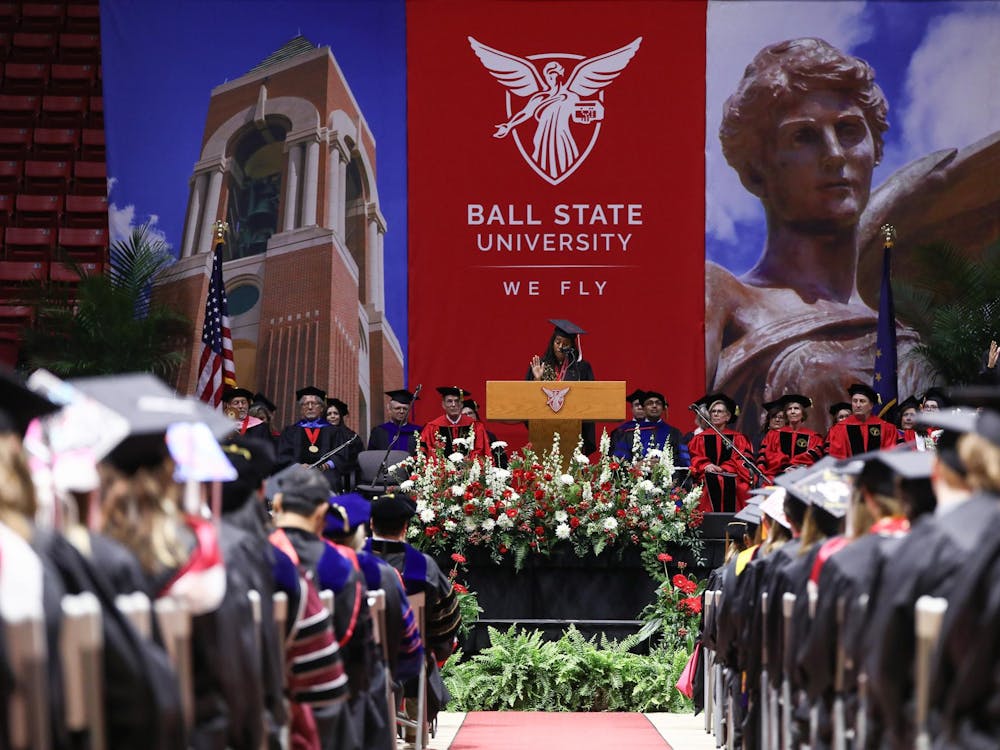"Behind the Curtain" takes a look at the theatre students who do their work offstage. This part of the series follows a student stage manager.
Away from the lights and the crowd, an entire team is rushing around during a theater performance, making sure every detail is in place and ensuring that the actors' main responsibility is remembering their lines.
It's a world separate from the performance, and this world is hectic. However, some students, such as Katie Summerville, a senior directing and stage management major, call it home.
Stage managers are basically the parents of backstage, said Annie Burnett, a sophomore acting major.
“We could never do it without a stage manager. Oftentimes we call them mom or dad, they have so much on their plate,” she said.
There is only one stage manager per show, so unless they have an assistant stage manager, backstage responsibilities fall on their shoulders.
The stage manager shows up fifteen minutes before the crew and makes sure everything is in its proper condition for the performance. Then, while everyone else arrives, they take care of any issues and last-minute adjustments before the curtain goes up.
As the show progresses, the stage manager is in constant communication with the soundboard operator and the light board operator so they can spring into action if problems arise.
“[Without a stage manager] we’d never be on time and have trouble pacing ourselves,” said Burnett.
Summerville became a stage manager her sophomore year of high school when her best friend, the previous stage manager, graduated. Summerville was working as a crew member at the time.
Summerville had competition for the position, but she got the job.
“I kind of got addicted to it,” Summerville said. “It’s so amazing to watching the process from the very beginning to see how it turns out at the very end and to just have a part in that.”
Being a stage manager can be difficult for someone not equipped with the right skills.
“Time management [is important],” Summerville said. “There is generally so much you have to do. You have to balance classes and homework and during rehearsal it goes until 10:30 during the week. I don’t usually get home until 11:15.”
But Summerville will leave Ball State with some fond memories, one of them being Ball State’s production of Frankenstein in 2013. The play was a completely new work based off of the book.
“I feel like that was the show where I learned the most because it was such a different experience,” Summerville said. “Everyone was creating something new and everyone had to have so much invested into it to make it succeed.”
After graduating from Ball State, Summerville hopes to branch out from stage management and become more involved in film work.
Ball State has given her the skills and experiences necessary to make that transition, she said.





